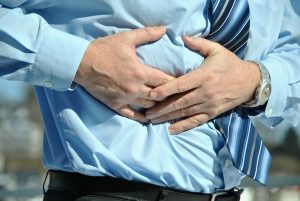Do you have issues with your gut? There are five things you should pay attention to, as they have a bad impact on our gut.
Diet
The first thing to pay attention to is diet. As you can imagine modern and processed food is bad for the gut.
We should be getting 25 – 30 grams of fiber on average. In reality, on average American gets only 15 grams. Will Bulsiewics says:
“Compared to the Hadza of Tanzania, some of the last remaining communities of hunter-gatherers, people in the U.S. have about 40% less microbial diversity in the gut. This leads us to believe that we’ve essentially lost 40% of what we’re supposed to have as humans. To an extent it’s reversible, but this study shows that we might be in a place where we’re impaired from the get-go.”
In the absence of fiber food, we have excessive consumption of animal products which also hurts the gut microbiome.
Antibiotics in Food and Medicine
The Center for Disease Control and Prevention estimates that approximately 30% of antibiotics prescribed are completely unnecessary. This can be extremely dangerous. Even if you are doing your best to avoid antibiotic prescription, there is still a high possibility of exposure. According to the finding from the American Gut Project research from 2018, scientists detected antibiotics in fecal samples from those who haven’t been taking any antibiotics previously.
As Bulsiewics said:
“Around 80% of the antibiotics in our country are actually administered to livestock as a part of animal agriculture.”
We need more research to determine the implications of antibiotics given to animals that end up in human bodies and how that impacts the gut.

Five Things that Have a Bad Impact on Your Gut
The Impact of Nature
“What we’ve come to learn about through the American Gut Project is that their gut is really an extension of their greater environment. They actually have bacteria in the gut that are specific to zebra skin. They’re really touching nature all the time and therefore reinforcing this extremely diverse microbiome. There’s also an enormous amount of skin-to-skin contact. They’re wearing no clothes much of the time, children are always on the backs, bellies, or shoulders and passed around from person to person.”
Being in touch with nature is crucial. It has an impact on damages already done by the food you eat and antibiotics that you might be taking. Nature is constantly reinforcing the recovery of your body and your mental and physical health, including your gut health as well.
Pesticides
Glyphosate is showing up more in food and human bodies that we would expect. In a recent study by the Environmental Working Group, glyphosate is in 21 oat-based cereals and popular snacks.
Furthermore, there is concern about glyphosate’s effect on the quality of soil, as it has an impact on the quality of crops and therefore on our gut.
Stress and Poor Sleep
Lack of sleep and stress have an impact on our overall well-being including gut health. The communication between gut and brain is through a gut-brain axis. Poor gut health can also have an impact on our mental health. Also, stress and emotions can mess up our gut health.
We know more about our overall health than we ever did. One of the solutions for improving gut health is taking probiotics. When you take a probiotic supplement, you add more good bacteria to your gut. There is evidence that probiotics are beneficial for managing issues such as diarrhea caused by antibiotics.
There are also lifestyle choices that we can do to support the microbiome. These are getting enough sleep, eating more plants, exercising, meditation to elevate stress, opting for organic foods, spending time in nature, and supporting the sustainable agricultural initiative.




